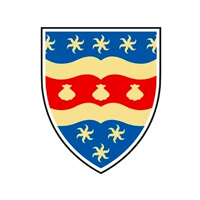fees waived
Anthropology, BA (Hons), with industry placement
University of Plymouth, United Kingdom
Subject ranking
UK / CUG 38th
UK / The Times 44th
UK / Guardian 54th
Costs
food & rentS$16.8K / year
Entry requirements
Scholarships
Unlimited quantity
Unlimited quantity
Unlimited quantity
Limited quantity
Information
Code
Code
Intakes
Website (External)
Programmes
Information
Duration
2028
Course summary
Studying anthropology is like embarking on an incredible journey. You will meet peoples with different cultural practices, religions, traditions and beliefs. You will learn to compare and analyse these societies and figure out what humans have in common, and the ways in which we differ. Your travels will teach you that the exotic is, on close scrutiny, rather familiar.Anthropology will teach you something about yourself: you will realise that your way of doing and valuing things is neither obvious nor natural, but just one drop in an ocean of human possibility. Guided by world-leading teachers, you will become an expert in managing cultural diversity. You will be perfectly placed to help people respond to the many political, environmental, economic and cultural challenges that increasingly beset them.
- All our modules rely on 100% coursework. We want to create inclusive learning environments, designing forms of assessment that reflect real working conditions and truly test the skills anthropologists will need to apply in their future careers.
- Learn anthropology through an innovative, hands-on approach. Throughout your time with us, you will get many opportunities to participate in real anthropological research.
- You will be taught by research-active anthropologists, who constantly publish work in renowned academic journals, ensuring your course is based on cutting-edge developments in the field.
- Take part in two major, funded field trips that enable you to practice core anthropological skills, and get to know your colleagues better. Travel to London and Oxford to visit various ethnographic museums, and take part in an international field trip to carry out fieldwork in a non-British setting.
- Shape the way anthropology is taught. Many of the subjects we teach are directly proposed by students themselves. That’s why you’ll learn about marine ethnography, humour and laughter, conspiracy theory, and anything in between.
Modules
In your first year, we introduce you to the core of the discipline. You will learn how to think like an anthropologist, comparing data from across the worlds to make solid statements about human behaviour. You will also have the chance to start actually doing your own ethnographic fieldwork, not just reading about it!In your second year, you will further develop your social scientific research skills, and get to practice more advanced ethnographic fieldwork techniques (such as multi-species and multi-sensory ethnography, and participant observation of digital worlds). You will be also able to explore many specialist subjects, and start to identify the topic you’d like to explore for your dissertation.Gain valuable on-the-job experience through our optional placement year. We will support you in your second year in deciding whether to take this opportunity, and assist you in finding a placement and being prepared for it.In your final year, you will work closely with your personal supervisor and use all the skills you’ve learned to produce an anthropological dissertation on a topic of your choice. At the same time, you will also take on the role of live consultant to apply anthropology to solve a particular problem, ideally in an area in which you wish to work or pursue further study.The modules shown for this course or programme are those being studied by current students, or expected new modules. Modules are subject to change depending on year of entry.
Assessment method
100% of assessment is by coursework.
Qualified teacher status (QTS)
To work as a teacher at a state school in England or Wales, you will need to achieve qualified teacher status (QTS). This is offered on this course for the following level:- Course does not award QTS
In your first year, we introduce you to the core of the discipline. You will learn how to think like an anthropologist, comparing data from across the worlds to make solid statements about human behaviour. You will also have the chance to start actually doing your own ethnographic fieldwork, not just reading about it! In your second year, you will further develop your social scientific research skills, and get to practice more advanced ethnographic fieldwork techniques (such as multi-species and multi-sensory ethnography, and participant observation of digital worlds). You will be also able to explore many specialist subjects, and start to identify the topic you’d like to explore for your dissertation. Gain valuable on-the-job experience through our optional placement year. We will support you in your second year in deciding whether to take this opportunity, and assist you in finding a placement and being prepared for it. In your final year, you will work closely with your personal supervisor and use all the skills you’ve learned to produce an anthropological dissertation on a topic of your choice. At the same time, you will also take on the role of live consultant to apply anthropology to solve a particular problem, ideally in an area in which you wish to work or pursue further study. The modules shown for this course or programme are those being studied by current students, or expected new modules. Modules are subject to change depending on year of entry.
A local representative of University of Plymouth in Singapore is available online to assist you with enquiries about this course.

